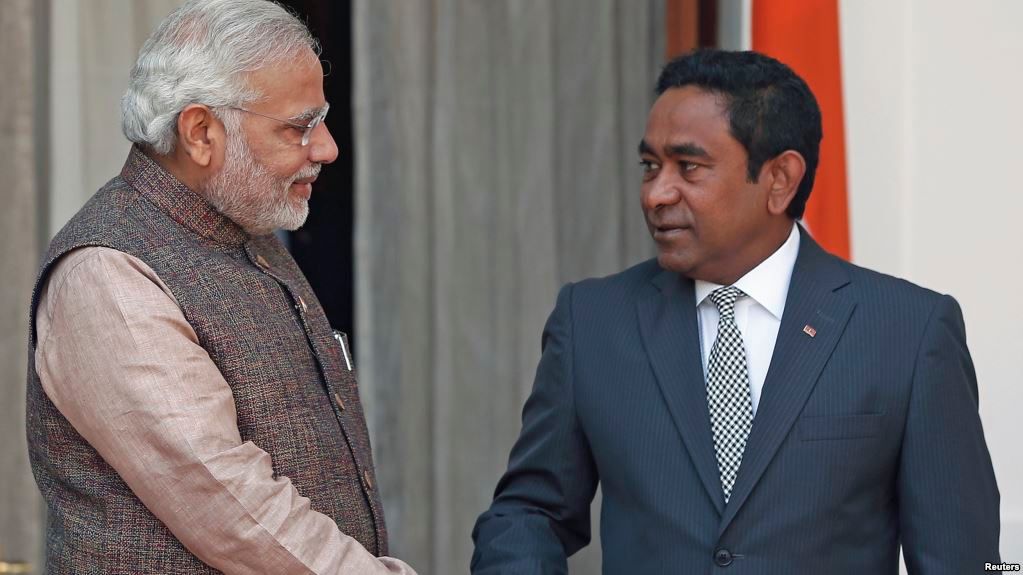Indian PM calls for conducive environment for Maldives election
Modi renewed calls to restore the independent functioning of democratic institutions.

13 Aug 2018, 09:00
Indian Prime Minister Narendra Modi on Sunday renewed calls to restore the independent functioning of democratic institutions before the September 23 presidential election.
“We hope that Maldives government will ensure early resumption of the political process and allow democratic institutions, including the judiciary to function independently in a fair and transparent manner,” he told the Times of India.
“This will create conducive environment for the presidential elections.”
Modi’s statement echoed India’s calls in early July for the Maldives to “return to the path of democracy” before the polls as the parliament and judiciary were “not allowed to function in a free and transparent manner.”
Become a member
Get full access to our archive and personalise your experience.
Already a member?
Discussion
No comments yet. Be the first to share your thoughts!
No comments yet. Be the first to join the conversation!
Join the Conversation
Sign in to share your thoughts under an alias and take part in the discussion. Independent journalism thrives on open, respectful debate — your voice matters.




